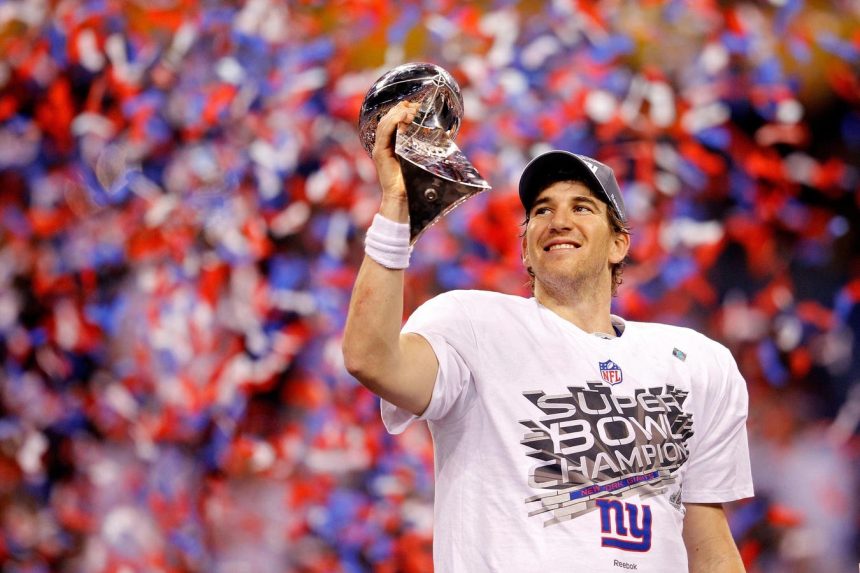Eli Manning’s Hall of Fame candidacy sparks a crucial debate about what truly defines greatness in the NFL. The quarterback landscape from the mid-2000s to the late 2010s was dominated by a clear hierarchy, with undisputed legends like Tom Brady and Peyton Manning at the pinnacle, followed by a tier featuring Aaron Rodgers, Drew Brees, and Ben Roethlisberger. This second tier represents a dividing line in Hall of Fame discussions, with Brees’s prolific career likely guaranteeing his enshrinement, while Rodgers and Roethlisberger present compelling cases with contrasting arguments based on Super Bowl victories versus individual statistical dominance. Beneath them, quarterbacks like Matt Ryan and Philip Rivers, while accomplished, fall short of the Hall of Fame threshold. Eli Manning’s positioning within this hierarchy, often perceived as inhabiting the third tier, begs a closer examination of his legacy, particularly as he becomes eligible for Hall of Fame consideration.
A cursory glance at Eli Manning’s career statistics might not immediately scream Hall of Fame. His regular season numbers, while respectable and placing him within the top 14 in several all-time categories, lack the eye-popping brilliance of his contemporaries. He holds the unfortunate distinction of leading the league in interceptions three times and never truly contended for MVP or other prestigious individual awards. His career record of 117-117, while symbolic of his consistency, doesn’t convey the dominance expected of a Hall of Fame quarterback. However, focusing solely on these cumulative statistics misses the essence of Manning’s impact and overlooks the moments that define his legacy: his two Super Bowl victories against the seemingly invincible New England Patriots dynasty.
The narrative surrounding Eli Manning shifts dramatically when the postseason spotlight shines upon him. His playoff statistics demonstrate a marked improvement over his regular season performance, highlighting his ability to elevate his game in crucial moments. A career playoff record of 8-4, including a remarkable 5-2 record on the road, further underscores his clutch performances. While his six playoff appearances over 16 seasons might seem limited, his success within those appearances places him among the top 25 quarterbacks in playoff wins all-time. These are not simply wins; they are victories forged against formidable opponents in pressure-cooker environments, showcasing a unique ability to thrive under duress.
Manning’s two Super Bowl triumphs against the Tom Brady-led Patriots are not just individual accomplishments, but narrative-shifting moments in NFL history. These victories, both secured against a team considered by many to be amongst the greatest of all time, transcend mere statistics. They represent the ultimate David versus Goliath story, with Manning, often perceived as the underdog, toppling the seemingly unstoppable force of the Patriots. His combined performance in these two Super Bowls – 49 completions for 551 yards, 3 touchdowns, and a single interception – cemented his status as a big-game performer. The fact that he earned Super Bowl MVP honors in both victories, placing him in the exclusive company of legends like Joe Montana and Tom Brady, further strengthens his case for Hall of Fame recognition.
Beyond the Super Bowl victories themselves, the paths Manning forged to reach those pinnacle moments are equally compelling. His playoff runs in 2008 and 2011 required navigating challenging road games against playoff-caliber opponents. In 2008, Manning led the Giants to victories over the Tampa Bay Buccaneers, Dallas Cowboys, and Green Bay Packers, setting up the dramatic Super Bowl XLII upset against the undefeated Patriots. The 2011 journey was no less arduous, with victories over the Atlanta Falcons, Green Bay Packers, and San Francisco 49ers culminating in another Super Bowl showdown against the Patriots. Across these two playoff runs, Manning threw for an impressive 15 touchdowns against only 2 interceptions, displaying remarkable efficiency and decision-making under immense pressure.
The question of Eli Manning’s Hall of Fame worthiness ultimately boils down to how we define greatness. While his career statistics might not rival the sheer volume or consistency of other Hall of Fame quarterbacks, his impact transcends mere numbers. He embodies the idea that some players are simply built for the grandest stage, rising to the occasion when the stakes are highest. His two Super Bowl victories over the Patriots, the iconic “Helmet Catch” play, and his demonstrated ability to elevate his performance in the playoffs are indelible moments in NFL history. These achievements are not quantifiable by traditional metrics but represent invaluable contributions to the narrative of the league. The story of the NFL cannot be accurately told without including Eli Manning’s pivotal role, particularly his dismantling of a dynasty.
Manning’s legacy, therefore, hinges on the intangible qualities often overlooked in statistical analyses: leadership, resilience, clutch performance, and the ability to inspire teammates in crucial moments. His two Super Bowl MVP awards are not just individual accolades but testaments to his ability to galvanize a team and lead them to victory against formidable odds. While his regular season performance may not have always dazzled, his playoff heroics, particularly against the Patriots, solidified his place as a significant figure in the NFL landscape. The debate surrounding his Hall of Fame candidacy underscores the complexity of evaluating quarterbacks and the importance of considering not just the numbers, but the narrative they shape within the larger story of the league.



